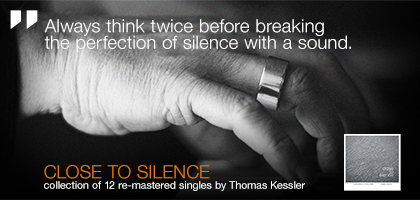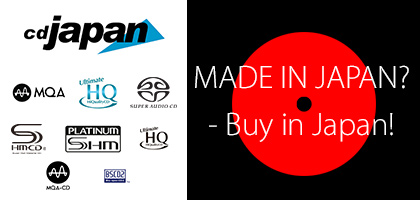No. 261 February 2026
- COVER REVIEW: TECHDAS Air Force IV ⸜ turntable » JAPAN
- RECORDING TECHNIQUE ⸜ music: 3M DIGITAL AUDIO MASTERING SYSTEM Part 2 || MUSIC » USA
- MUSIC ⸜ review: ARNE DOMNÉRUS, , Jazz At The Pawnshop, Proprius/AudioNautes Recordings MQA-CD Crystal Disc ⸜ 1977/2025 » SWEDEN / ITALY
- REVIEW: CIRCLE LABS AS100 ⸜ integrated amplifier » POLAND
- REVIEW: SHANLING EC Zero T ⸜ MQA-CD player • mobile » CHINA
- REVIEW: FEZZ AUDIO Sagita Prestige Evo & Olympia Evo Mono ⸜ linestage & power amplifier • monaural » POLAND
- MICRO REVIEW: ACOUSTIC REVIVE PS-DBLP ⸜ record clamp / stabilizer » JAPAN
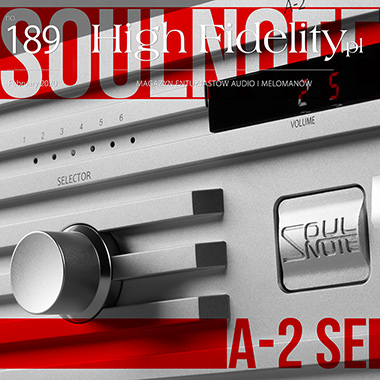

|

|
|
Music from a shop: CLOSED 
But these were not only stores as such, although this was obviously their primary purpose, but also a meeting places for people with similar interests. Places where music bands were born and often died just as quickly. Places where information and ideas were exchanged, where education took place - both musical and simply cultural. Places attracting like a magnet. Music stores were simply cultural centers. 
This idea survived the first digital revolution, i.e. the emergence of the Compact Disc on the market. Simply vinyl records were gradually replaced by plastic CD boxes. Everyone agrees that the plug was removed from the socket only by the digital revolution 2.0, i.e. the music files being available on the Internet - first pirated, in the form of mp3, and then also legally bought, also in high definition. The process was sealed by the success of streaming services - iTunes, Spotify and Tidal. Record Stores, the photo album I mentioned, as well as other publications, such as The Record Store Book by the Rebecca Villaneda and Mike Spitz, talk about the greatness and decline of such places. Because, it's probably clear, they are becoming rarer, smaller and more and more often they are first and foremost stores with used vinyl records. Record stores in the sense that Sir Elgar founded them have been disappearing from the "face of the world." Last year also Krakow lost one of its most important places with music - the MUSIC CORNER store disappeared from Św. Tomasz 4 street. I knew it from the times when it was located on the Krakow Market Square, in the huge rooms of Pasaż 13, not to mention the on the Św. Tomasz. I bought all my first CDs there, including many of which I listen to still today. In time, however, I was a rarer visitor and finally visited it only once a year – on the Record Store Day. |

The reason was simple - I buy almost all records and CDs online today. Not because they are cheaper, but because most of my purchases are special versions of albums, usually coming from Japan. However, the fact remains - I buy online. And just moving with shopping from the real to the virtual world (probably only such old people as I see this distinction, for young it does not even exist) resulted in the closing of the Music Corner. At the moment, it has its headquarters at 20 Juliusz Lea Street, but - as I've heard - it will eventually be closed for good. And so we lose another place related to culture. Admittedly, we will still have sections devoted to music in EMPiK, Saturn etc. networks (and that's good!), but these are only additions to other business, they are not culture-creating places. Meanwhile, one of the most important roles of record stores was education. Therefore, it is a pity that the city's authorities do not see them as a partner, they treat them in the same way as any other tenant. And yet it could be different. If we agree that a record store, bookstore or antique shop are part of the city's cultural fabric, they should be treated on special terms. They could have, for example, special low rents and premises in the best places in the city. They could be promoted on a par with museums and even concerts. 
The stores themselves would have to change their approach to business, because they would have to become a real cultural centers, with shows, lectures, auditions, mini-concerts, and maybe even symposia. This would mean that their owners would also have to be culture managers. However, I think it could be done. Provided that there was such a will from both sides. And then I could buy records not only in Japan, but I would probably buy them on the spot in such a store. And for young people it would often be the first real meeting with music, not only in the form of noise coming from crappy headphones. That's my dream. ■ WOJCIECH PACUŁA | chief editor |
About Us |
We cooperate |
Patrons |
|
Our reviewers regularly contribute to “Enjoy the Music.com”, “Positive-Feedback.com”, “HiFiStatement.net” and “Hi-Fi Choice & Home Cinema. Edycja Polska” . "High Fidelity" is a monthly magazine dedicated to high quality sound. It has been published since May 1st, 2004. Up until October 2008, the magazine was called "High Fidelity OnLine", but since November 2008 it has been registered under the new title. "High Fidelity" is an online magazine, i.e. it is only published on the web. For the last few years it has been published both in Polish and in English. Thanks to our English section, the magazine has now a worldwide reach - statistics show that we have readers from almost every country in the world. Once a year, we prepare a printed edition of one of reviews published online. This unique, limited collector's edition is given to the visitors of the Audio Show in Warsaw, Poland, held in November of each year. For years, "High Fidelity" has been cooperating with other audio magazines, including “Enjoy the Music.com” and “Positive-Feedback.com” in the U.S. and “HiFiStatement.net” in Germany. Our reviews have also been published by “6moons.com”. You can contact any of our contributors by clicking his email address on our CONTACT page. |
 



|
   |
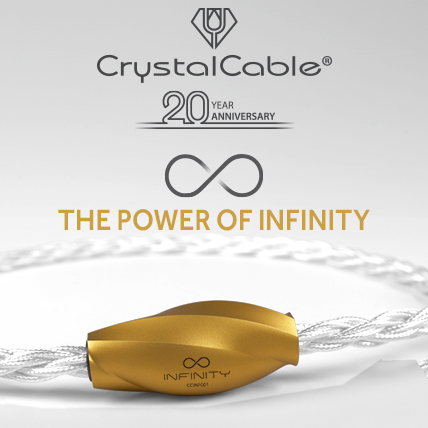


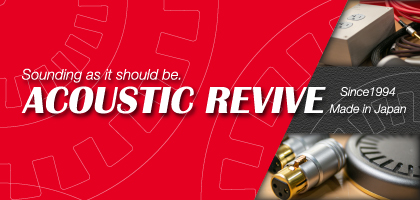
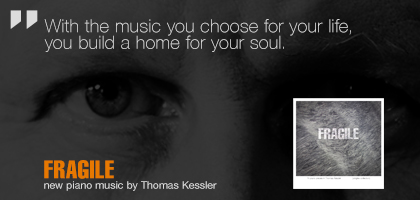

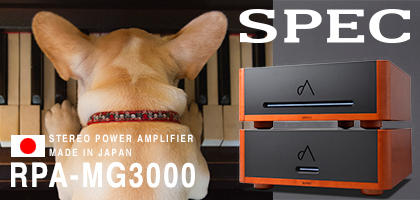
 he first really large record store was opened in 1921 by Edward Elgar in London. His Master’s Voice flagship store on Oxford Street was, according to Bernd Jonkmanns, author of Record Stores, the largest store of its kind on the planet. The boom in the music industry and the musical madness associated with the LP that engulfed the people in the 1950s caused a flood of ever larger, richer but also quite small ones - record stores. In a short time, the display of vinyl record on the storefront was something normal and common.
he first really large record store was opened in 1921 by Edward Elgar in London. His Master’s Voice flagship store on Oxford Street was, according to Bernd Jonkmanns, author of Record Stores, the largest store of its kind on the planet. The boom in the music industry and the musical madness associated with the LP that engulfed the people in the 1950s caused a flood of ever larger, richer but also quite small ones - record stores. In a short time, the display of vinyl record on the storefront was something normal and common.